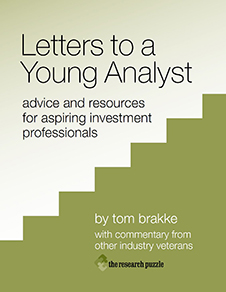
- Tuesday, February 23rd, 2016
- shared delusions
-
It shouldn’t be too controversial to say that an investment program ought to be grounded on reasonable expectations. Asset owners and the asset managers who serve as their agents should proceed together with realistic notions of the possible outcomes — and the probable ones.
Aspirational goals might seem attractive (who doesn’t want to generate out-sized returns?), but are likely a ticket to failure, not success.
I bring this up because of a posting by Charlie Bilello of Pension Partners,Pension Partners | It’s called “The Hedge Fund Myth,” although my point is not limited to hedge funds. which begins with excerpts from mandates written by asset owners that are looking for hedge fund managers. The expectations are twisted, to say the least.
Several mention the need for a good “pedigree.” While there have been many stories of people who left a successful firm and went on to create one of their own, there are many disasters too. Even those who were significant players at their former organizations (many weren’t, but try to play that pedigree card anyway) fail when trying on their own. They may lack the broader skills necessary to run the show, or they just can’t thrive outside of the ecosystem that they left behind. Pedigree is easily overrated.
But the striking thing about the list of mandates provided is the unrealistic notion that you can name your preferences for return, volatility, drawdown, or Sharpe ratio and go out and find someone who can produce it. What that leads to is the selection of a manager who has apparently produced those numbers in the past. Good luck with that.SSRN | Later in his piece, Bilello links to and quotes from a good new piece of research about chasing performance.
The asset managers whose historical performance characteristics match those unrealistic expectations will be happy to get the business and won’t attempt to modify their new clients’ expectations. They will sail off together, unlikely to reach their stated destination.
But the asset owners aren’t always the source of the questionable assumptions. There are a lot of situations where asset managers foster them, sometimes with bold statements and sometimes with subtle ones.
“Targeting” is a popular anchoring device. These days, you’ll find target returns and target volatilities and target alphas in presentations and marketing materials from firms large and small. Is it really that easy? And, let’s take those targeted alphas for example: How likely is it that there will be those levels of excess return that could be considered legendary in comparison to others? A “target” can be a mirage.
Firms that allocate to managers often cite the value added that they produce through manager selection. I recently saw one who said it consistently produced one to two percent in extra returns from that activity. There was no proof offered and the description of the process seemed pretty weak to me, but just think about the claim. That level of expertise is really quite rare among allocators.
I’ve found that a similar thing somtimes happens in the creation of the capital market expectations that form the basis of advice given to institutions and individuals. If you read the fine print, some firms add in incremental returns to their forward-looking numbers because they believe that they can outperform the respective indexes through internal management of the assets or astute selection of external managers.
Even if that has been true in the past, asset allocation should be a careful and conservative exercise. It’s hard enough to come up with reasonable expectations. Adding a layer of expected outperformance might show confidence (unwarranted though it may be in the face of mean reversion), but that’s not the purpose of the process.
On each side of the table, that of the asset owner and that of the asset manager, it’s common for expectations to get out of whack. When there isn’t a give and take between the parties to get those expectations back in line, it results in shared delusions.
In most cases, asset managers have an informational advantage over asset owners and therefore should be the governor on this activity, but in practice many actively push flawed assumptions or let them linger because it’s in their interest to do so.
(By the way, this whole discussion applies to investment advisors and their individual clients as well.)
What’s the responsibility of an investment provider when it comes to these issues? You don’t hear a lot of discussion about that. But what’s best for both sides of the relationship is the development of a true long-term partnership based upon mutual trust. Inappropriate expectations and shared delusions will never lead to that.
